The idea of camping in Africa can be exciting, but also incredibly intimidating. Even if you are an avid camper back home, you could have no idea what to expect when traveling through some rough terrains in third-world countries.
In early 2020, I went on my first overland camping trip in East Africa. I traveled through Kenya and Uganda on a bucket list trip that was absolutely incredible. I should tell you that I’m not a camper. I love camping, but it’s just not something I do at-home because I don’t own any of the equipment you need to do it. However, the only way I could afford a trip to a place like East Africa was by signing up for an overland camping trip versus opting for a fancy safari. I figured I could suck it up for two weeks if it meant getting to go to Kenya and Uganda.
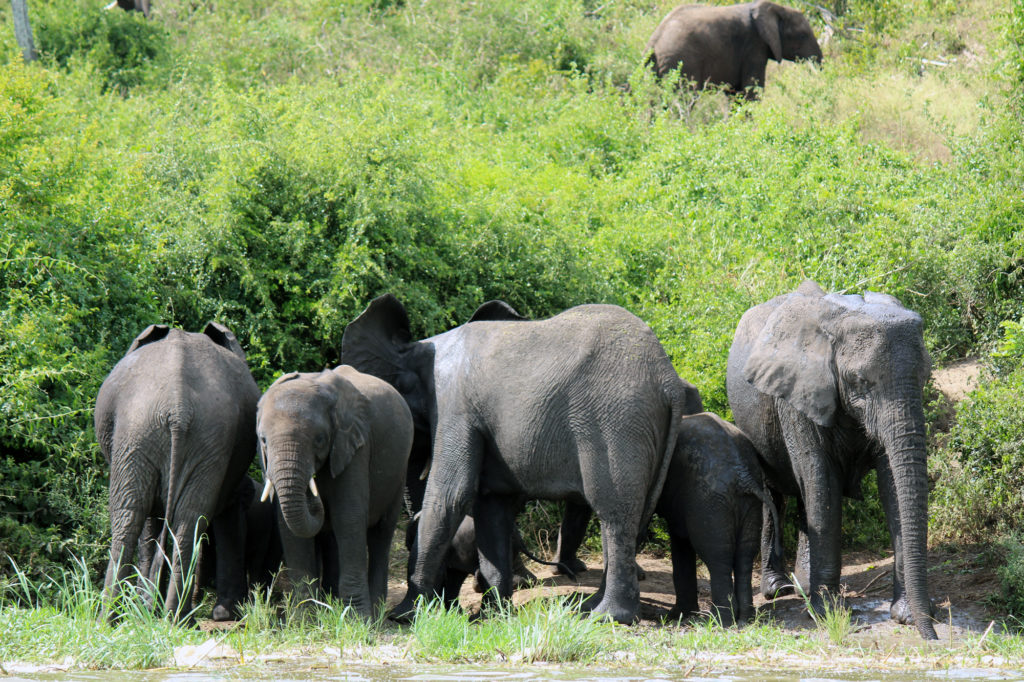
On my trip I traveled with Intrepid. Intrepid is a North American tour company that hosts different tours all around the world. In order to travel through remote areas of East Africa, you really need to go with a tour company. These areas are not built up for tourists, and would be incredibly hard to travel through on your own. By traveling with a tour company as well, you get the added bonus of them providing you with equipment. They provided us with:
- Easy-to-assemble tents
- A mattress pad to sleep-on (you could opt-in to rent a sleeping bag)
- All cooking supplies (there was a cook that cooked your meals and you assisted with meal prep, and clean-up)
Although the tour company provided the main basics that can be incredibly hard to travel across the world with, there are still some things that I brought that really came in handy for this trip. So I want to break that down for you to make your packing easier.
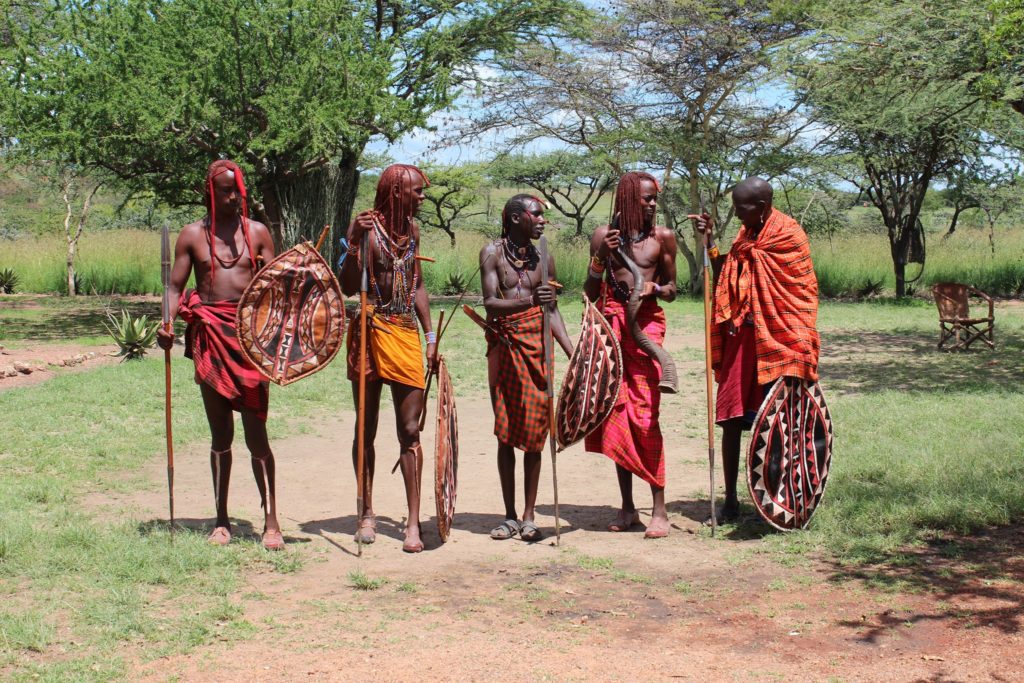
The bag(s)
First off, there are a few things that are important to keep in mind when choosing your luggage for this trip. For starters, suitcases are a no-go, you NEED to have a backpack. There is limited storage space on the overland buses/trucks, and there is no where to keep a suitcase.
When selecting the appropriate bag for camping in Africa, your tour company should provide you with a recommendation on size. DO NOT ignore this as the lockers for bag storage are small, and if you bring something too big, you a) won’t have anywhere to store it, but b) you’ll struggle every day with trying to get it up and down from the lockers.
I found it helpful to also have a smaller bag, like a reusable grocery bag, which I would fill up with my cosmetic case, and a few days worth of clothes. Since we were on-the-move almost every single day, this was easier than getting my bigger bag down, and digging through it to find what I needed every day. Plus, there is usually limited room in your tent to store these larger bags.
You’ll also need some sort of day bag for excursions or just to have with you on the bus with necessities as your main bag isn’t convenient to reach when on-the-move.
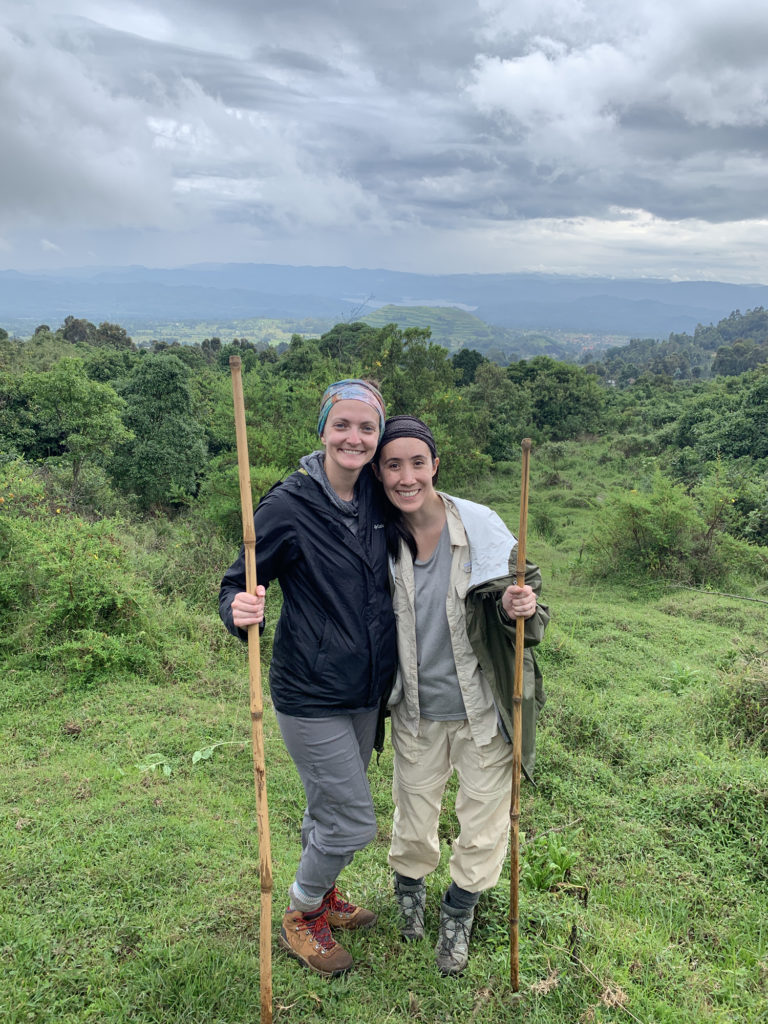
What clothing do you need for camping in Africa?
I wrote an article that has my full packing list when I went to East Africa. This will be a good reference for a full packing list. However, there are a few things that are important to keep in mind:
- It can get cold in the evenings when camping in Africa, so pack layers
- Lighter colours are best as darker colours attract bugs, and heat
- Cleaning your clothes is usually an option along the way but it’s often hard for your clothes to dry in time before you’re loading back up on the bus to go to your next destination. If you can pack enough to not have to do laundry, that’s easier
- Everything you own will get dusty. Skip the brand-name clothes, or clothes you care about too much, as you’ll be constantly covered in dust
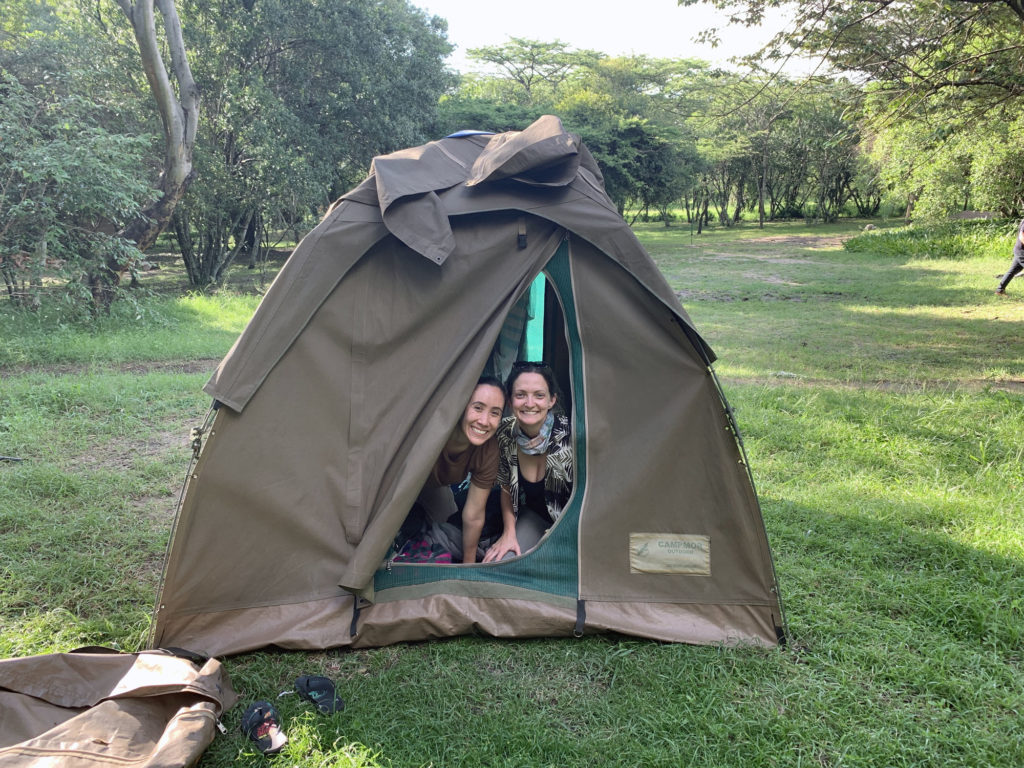
Other necessities for camping in Africa
There were definitely some other things I packed other than the usual things you need that I’m glad I did. There’s also some things I wish I didn’t pack.
For starters, two things that you’ll use daily are wipes, and hand sanitizer. As mentioned, you are constantly dusty, and the wipes can be great for wiping down things (including yourself), and naturally hand sanitizer always comes in handy when you don’t have access to proper water sources. I’m pretty sure I went through 5 bottles on this trip.
You’ll also want to pack a headlamp. Most of your campsites are pitch black at night and although a flashlight works too, a headlamp is way more convenient when you’re trying to do things like set-up your tent, or eat your dinner in the dark and need two hands. Ensure you also pack some extra batteries!
If you’re lucky, some of your campsites will have areas you can charge electronics or your bus will have outlets. However, these aren’t always dependable so I recommend that you bring a battery pack that can charge up multiple devices before it dies. I used this constantly and was a great way to keep everything charged up on-the-go. You will also want to pack spare batteries for your camera as you don’t want to be left with a dead camera when you are on the trip of a lifetime.
A Reusable water bottle may not be at the top of your list because you are probably wondering how you fill it up. It’s likely that your tour company and campsites will provide water coolers with clean, safe water. They actually recommend you bring a bottle to fill up as well, since they are trying to limit plastic waste.
In terms of things you don’t need to pack:
- Snacks: We made a ton of stops at stores along the way where we could stock up on snacks for our long drives. Plus, if you’re on a tour like mine, they don’t let you go hungry! The meals were fantastic
- Computer: The WiFi is not dependable in most places you’ll go, and a computer is not only bulky, but also a high-ticket item you now have to worry about
- Fancy Clothes: Go prepared that you’ll look like a bum, go days without showering, and you’ll always be covered in dust. There is 0 need to ever need to wear a dress or dress-up on a trip like this.
Overall, packing for camping in Africa doesn’t need to be as intimidating as it sounds. Essentially it just takes the essentials, and a few additional items that provide a lot of value for the best experience.
What are some items that you wish you had (or didn’t have) on your travels through East Africa? Share them below in the comments.

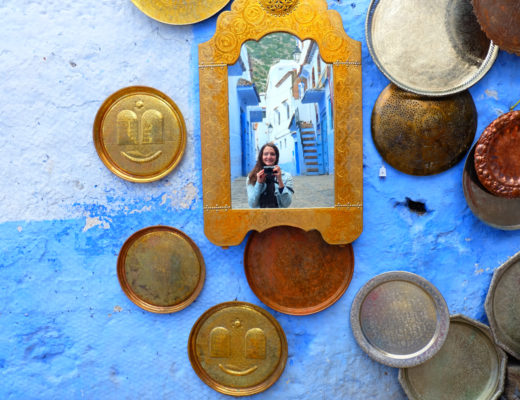
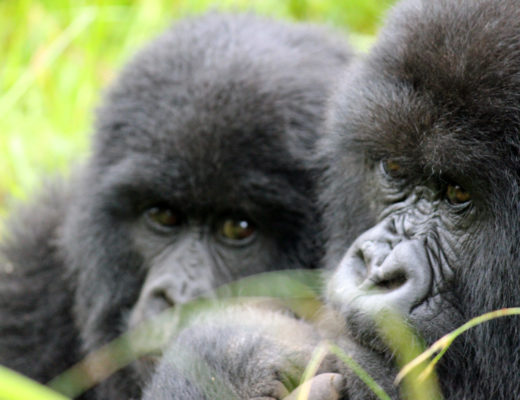
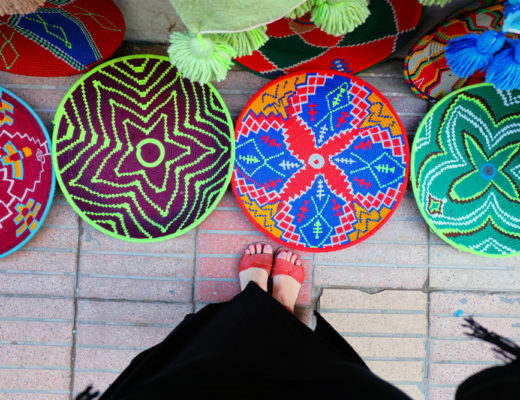

No Comments